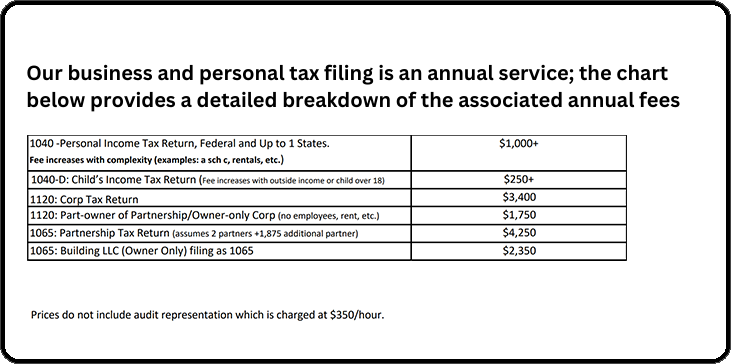Tune in to our podcast series: The Dental Board Room
Listen Now

The structure and leadership within a dental organization influence how patients perceive the quality of care they receive. Today, many patients are becoming more aware of who is making decisions behind the scenes. They want to feel confident that their treatment is guided by clinical judgment rather than business-driven motives. As corporatized dental models continue to grow, concerns about rushed appointments, high turnover, and aggressive treatment recommendations have also increased. In contrast, dentist-led organizations provide a patient-centered approach grounded in clinical expertise and continuity. The leadership behind a dental group plays a significant role in shaping patient confidence, loyalty, and long-term trust.
Dentist-led organizations operate on the foundation that clinical knowledge should guide decision-making. These models prioritize patient outcomes because the individuals leading the group have firsthand experience with the realities of treatment. A dentist understands how long a procedure should take, what level of follow-up is necessary, and how to balance patient comfort with effective clinical care. This insight shapes policies, workflow decisions, and practice culture in ways that directly benefit patients.
These qualities make dentist-led models appealing for patients who want reliable, ethical, and personalized dental experiences.
Trust develops most naturally when patients receive care from the same provider over many years. Continuity allows the patient and dentist to build a genuine connection, which leads to better communication and stronger outcomes. When patients know who will treat them, they feel more at ease sharing concerns, asking questions, and agreeing to recommended procedures.
One of the defining strengths of dentist-led organizations is the prioritization of clinical needs over financial targets. When clinicians guide decisions, they focus on what is best for the patient rather than aiming for high volume or rapid turnover. This commitment is essential for building an ethical and trustworthy practice model.
Balanced scheduling is one example of how clinical leadership shapes patient care. When appointment lengths match clinical needs, dentists have the time to perform thorough examinations, explain treatment options, and answer questions without feeling rushed. This improves accuracy and enhances the overall patient experience.
Ultimately, prioritizing clinical factors builds patient trust, enhances care quality, and creates a healthier practice environment.
A strong team culture is one of the most powerful factors in a successful dental organization. When leaders share the same professional language and understand clinical challenges, they create a workplace built on mutual respect and collaboration. Dentist-led leadership naturally supports this type of environment.
Ethics play a central role in the reputation of any healthcare organization. Dentist-led groups are known for maintaining standards designed by clinicians rather than high-pressure performance metrics. This type of oversight reinforces patient trust because it centers decision-making around health outcomes instead of financial calculations.
Review processes in dentist-led models focus on responsibility and accuracy. They examine whether treatments are effective, patient concerns are addressed, and long term health is prioritized. This approach encourages clinicians to practice evidence-based dentistry without fear of being measured only by revenue or volume.
Patient outcomes remain the main measure of success in clinician-led organizations. Because of this, patients feel confident that their oral health is the highest priority. They know their dentist is not being influenced by outside pressures to recommend unnecessary procedures. This creates a transparent, ethical, and safe environment for care.
Ethical oversight strengthens both the credibility of the organization and the trust patients place in their providers.
Dentist-led organizations offer a care model that emphasizes trust, stability, and long-term patient relationships. Their approach is grounded in clinical expertise, ethical decision-making, and continuity of care. As patients become more aware of corporatized dentistry and its potential drawbacks, dentist-led models stand out as reliable alternatives focused on patient well-being. They build strong team cultures, support informed decision making, and create environments where patients feel valued and protected. By placing clinical leadership at the center, these organizations create a foundation for lifelong trust and meaningful patient connections.
Dentist-led organizations build trust through consistent providers, ethical decisions, and patient-focused systems that support long-term health and confidence.
Wes knows what's best for dental practices. He's been doing this for a long time and he sees lots of practices. He can tell me how our practice is doing, and what we can do to increase our productivity. With past CPA's, there were no ideas. It was all coming from me, saying "I think I can do better, but I don't know how." I come in to meet with Wes and he says "You CAN do better, and I know how."
PracticeCFO is in hundreds of dental offices around the country. They know what numbers should look like. They know what percentages of payroll, rent and supplies should be, and they will hold you accountable to those numbers, which will really help you stick to your plan and your path of growth and savings. That is invaluable
Whenever something comes up, whether it's building or practice related and we weren't sure where the numbers would go, PracticeCFO has been instrumental in helping us figure that out. I can't say enough of how important that is - that it goes beyond that initial partnership. They make sure this business marriage works.
When I go home from work, I don't spend a whole lot of time stressing about what my books look like, or how much I owe in taxes. By using PracticeCFO, the burden of keeping track of a lot of the big financial numbers and metrics are taken off my plate.
PracticeCFO helped me develop a plan for the future. I have colleagues that work with other accountants that don't have a plan - they just look at the numbers of the practice and that's it. There's no plan for 10, 20 years from now. But with PracticeCFO, you get that. PracticeCFO makes you feel like you're they're only client.
(In reference to his practice sale) What could've been super stressful, wasn't! When picking John and Wes, it was from word of mouth recommendations and other people's experiences from the past that really did it for me. And it turns out that those recommendations were right on the line.
Wes knows the business side of dentistry. His comprehensive plan will organize your personal and professional finances so you can focus on taking care of patients. Massive ROI.
I can’t say enough good things about everyone at PracticeCFO. Everyone on the team is professional, organized, knowledgeable, helpful and kind. They also respond to emails and phone calls immediately and are always happy to help. They have helped me navigate year-to-year as a business owner. PracticeCFO gives me peace of mind that my business is in good hands.
I love Practice CFO! They have helped me obtain a practice and maintain a practice. They are incredible people who are on top of everything and make owning and running the business portion of a practice easy. They couldn’t be better for my business and my sanity. They have every detail of the business and taxes taken care of where all I have to do is show up and follow their easy steps to success!
Practice CFO has the best tools I’ve seen for personal tax and financial planning in addition to top-tier corporate tax and accounting services. I have been very pleased with the level of quality service. They manage my monthly bookkeeping and accounts payable. It is a great system and saves me a ton of time, and it allows us to have monthly financial statements within a week of month end.

This will close in 0 seconds